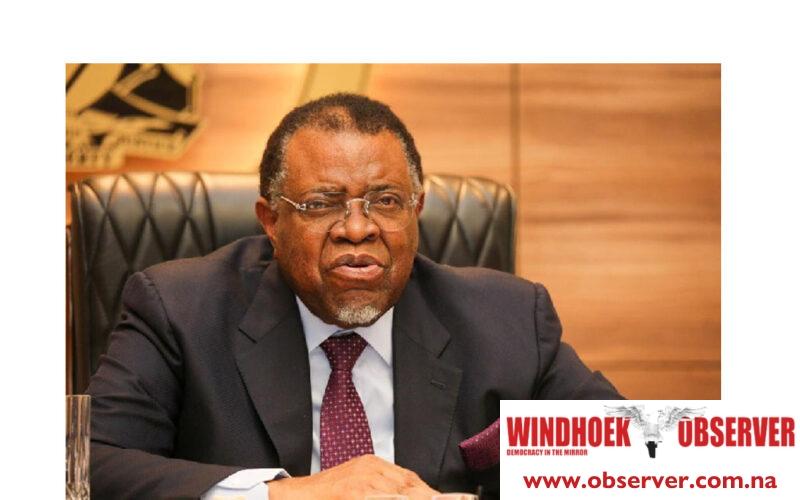Niël Terblanché
While addressing the 78th Session of the United Nations General Assembly, President Hage Geingob advocated for the urgent need for sustainable and predictable financing to achieve global Sustainable Development Goals (SDGs).
Reflecting on the past eight years, Geingob recalled the collective commitment made to prioritize people-centred development, emphasizing the need to ensure no one feels marginalized.
“The promise to ensure that no one feels left out remains the clarion call,” he said.
The President brought Namibia’s challenges to the forefront during his address. He recounted the myriad of adversities the nation has faced, ranging from the commodity crisis and historic droughts to the ongoing Covid-19 pandemic.
A significant point of contention raised by Geingob is Namibia’s classification as an upper middle-income country based on its high per capita income, a metric he described as not truly reflecting the nation’s historical inequities resulting from past colonial injustices.
Drawing attention to Namibia’s proactiveness, Geingob mentioned the 2019 Development Finance Assessment Report, which champions the use of an Integrated National Financing Framework.
“This innovative approach has enabled the country to identify unique opportunities, like green hydrogen and underwater kelp cultivation, to advance various SDGs and address climate change,” he said.
The President said that by synergizing public and private sector collaboration, Namibia has utilized creative financial tools such as green bonds and sustainability bonds. These efforts have culminated in the mobilization of over $1.2 billion in financing commitments by 2023.
He stressed the importance of domestic resource mobilization and how determined implementation of the principle complements Namibia’s developmental needs.
He urged international financing institutions, including the World Bank, to expand their lending capacities to cater to both lower- and middle-income nations.
“The call for the reform of the international financial architecture is a call to broaden opportunities to support development,” he said.
Geingob reiterated that for nations to truly progress toward their developmental aspirations, sustainable and predictable financing remains essential.
The United Nations General Assembly continues as leaders from around the world gather to discuss pressing global issues and chart the way forward.




